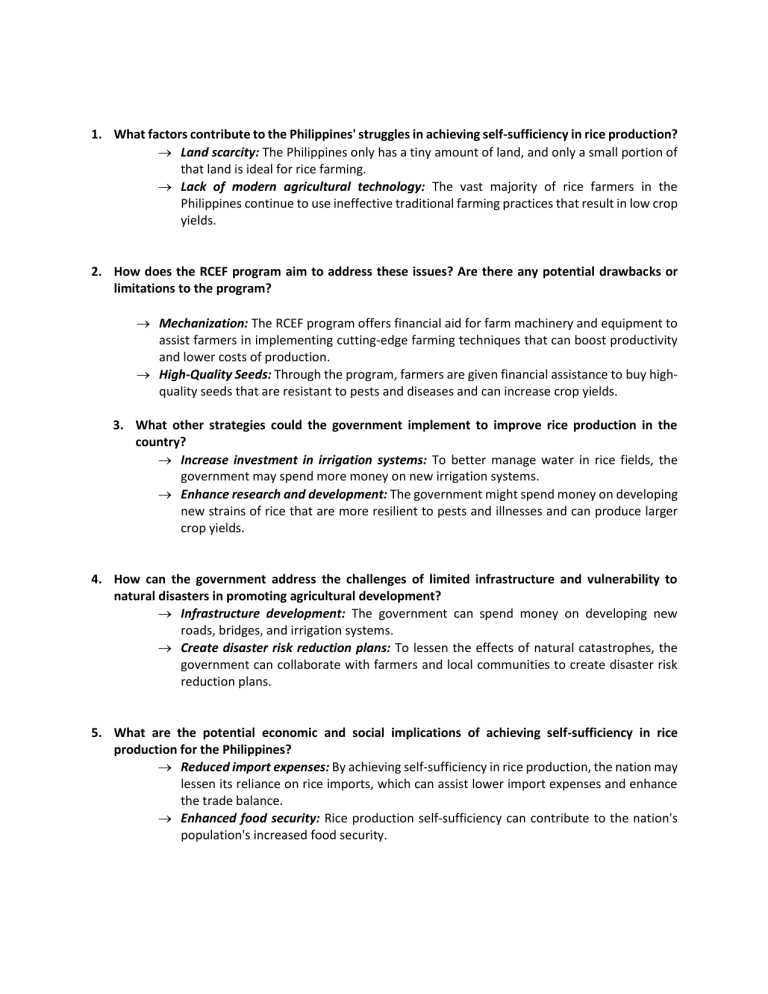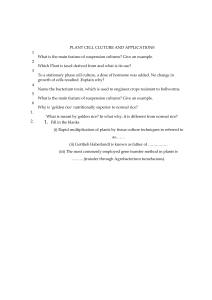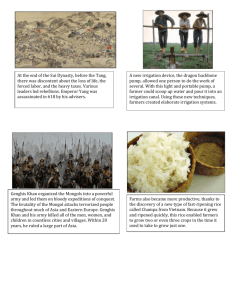
1. What factors contribute to the Philippines' struggles in achieving self-sufficiency in rice production? Land scarcity: The Philippines only has a tiny amount of land, and only a small portion of that land is ideal for rice farming. Lack of modern agricultural technology: The vast majority of rice farmers in the Philippines continue to use ineffective traditional farming practices that result in low crop yields. 2. How does the RCEF program aim to address these issues? Are there any potential drawbacks or limitations to the program? Mechanization: The RCEF program offers financial aid for farm machinery and equipment to assist farmers in implementing cutting-edge farming techniques that can boost productivity and lower costs of production. High-Quality Seeds: Through the program, farmers are given financial assistance to buy highquality seeds that are resistant to pests and diseases and can increase crop yields. 3. What other strategies could the government implement to improve rice production in the country? Increase investment in irrigation systems: To better manage water in rice fields, the government may spend more money on new irrigation systems. Enhance research and development: The government might spend money on developing new strains of rice that are more resilient to pests and illnesses and can produce larger crop yields. 4. How can the government address the challenges of limited infrastructure and vulnerability to natural disasters in promoting agricultural development? Infrastructure development: The government can spend money on developing new roads, bridges, and irrigation systems. Create disaster risk reduction plans: To lessen the effects of natural catastrophes, the government can collaborate with farmers and local communities to create disaster risk reduction plans. 5. What are the potential economic and social implications of achieving self-sufficiency in rice production for the Philippines? Reduced import expenses: By achieving self-sufficiency in rice production, the nation may lessen its reliance on rice imports, which can assist lower import expenses and enhance the trade balance. Enhanced food security: Rice production self-sufficiency can contribute to the nation's population's increased food security.

